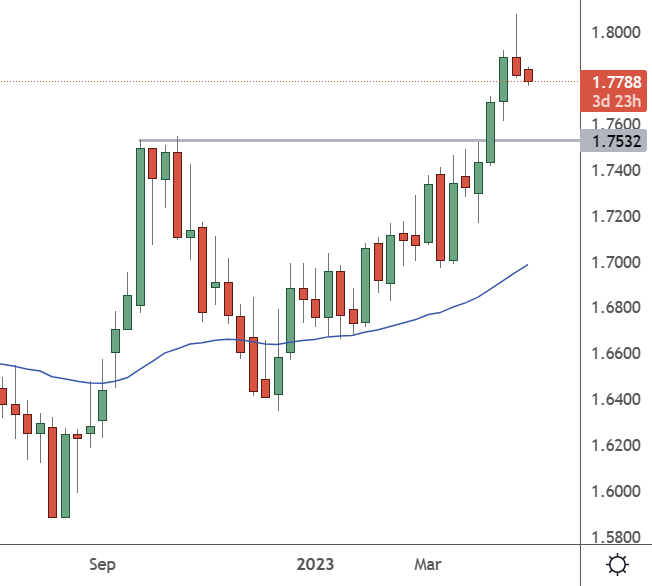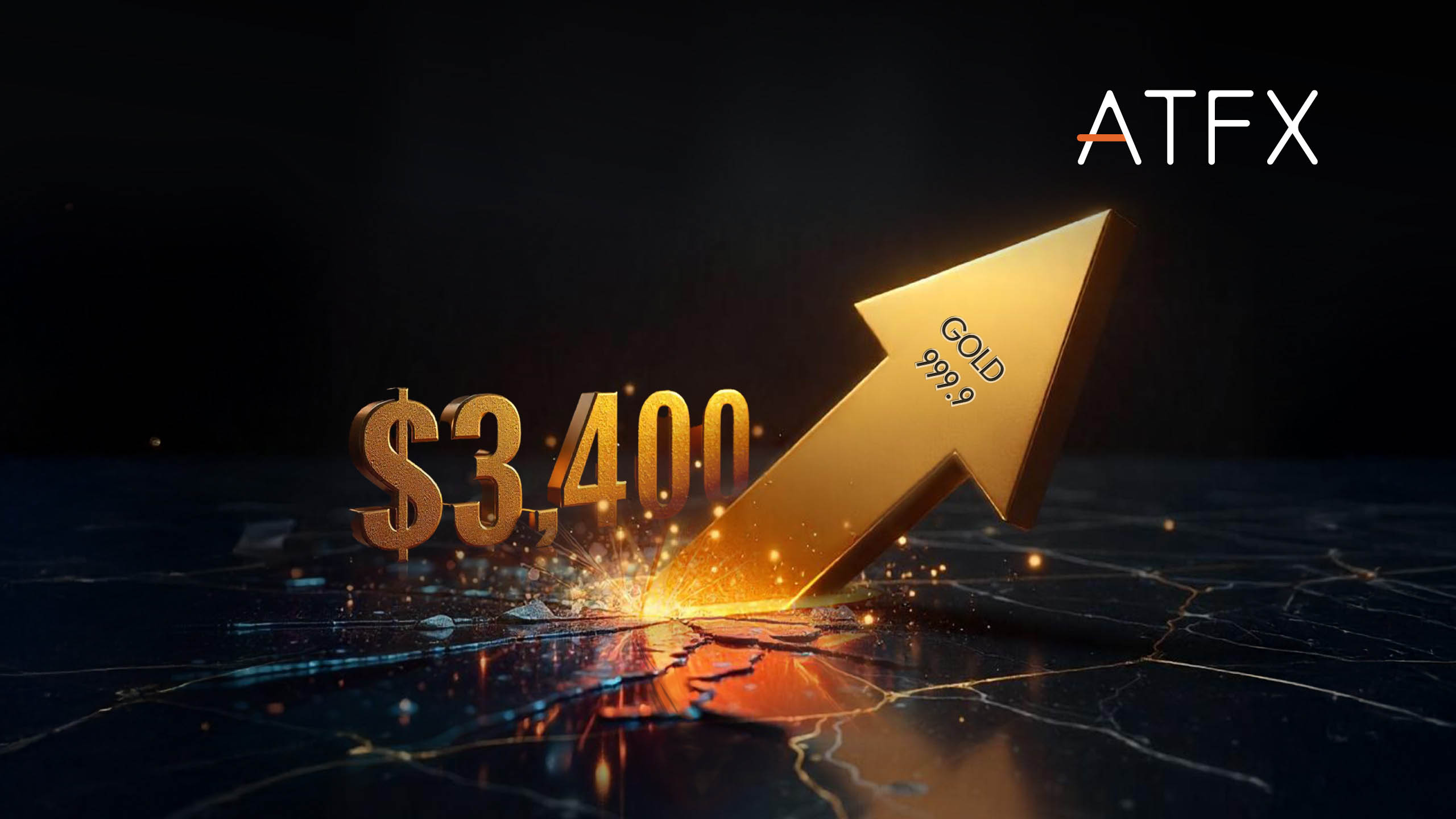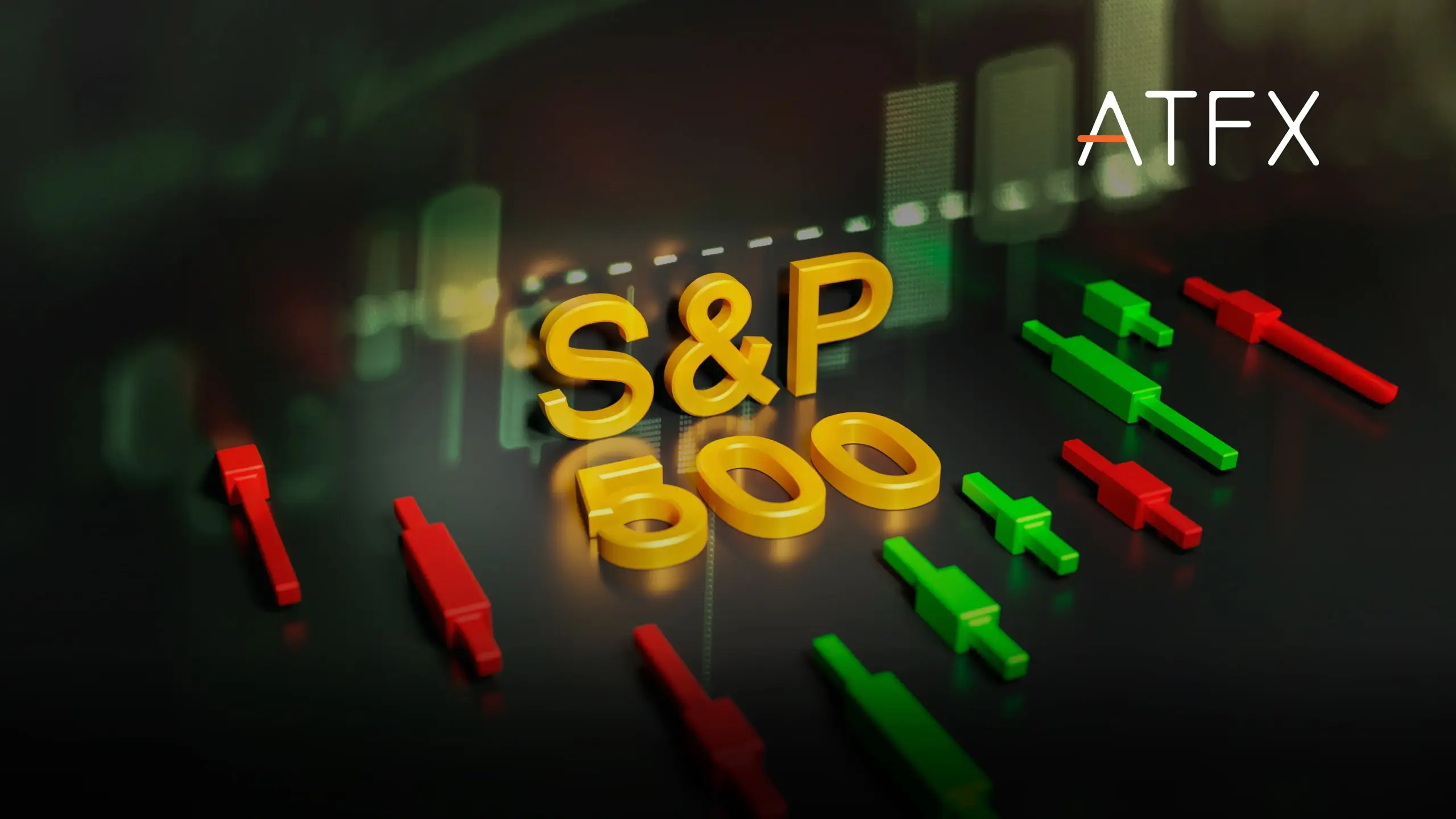The EURNZD exchange rate has been climbing higher this year but may have peaked ahead of the latest economic data from New Zealand.

EURNZD – Weekly Chart
EURNZD has hit resistance at the 1.80 level and could now retreat with 1.7530 as the first target and the potential to go further to 1.70.
The economic calendar will be busy on Tuesday, with core inflation from the eurozone released first. The flash number for April is expected to show a 5.7% increase in prices.
That will be followed later in the day by the RBNZ financial stability report. Kiwi employment will follow with a 0.4% jump in expected work and a predicted unemployment rate of 3.5%.
New Zealand prime minister Chris Hipkins is cooling expectations ahead of the country’s next budget, promising an “orthodox, no-frills budget” based on the cost of living and economic expansion measures. On Thursday, Hipkins gave a pre-budget speech and press conference outlining his plans for the last block of government spending before October’s election. He mapped out the plans for Labour’s second term in government.
Last week, New Zealand’s Inland Revenue Department (IRD) released a report on over 300 of the country’s wealthiest individuals. The High Wealth Individuals Research Project examined income and assets from 2015 to 2021. It highlighted an extreme concentration of wealth in the hands of a few billionaires and multi-millionaires. The group holds $85 billion in assets, three times New Zealand’s annual public health budget.
Vast amounts of money handed over to the super-rich in recent years will be paid for through cuts to government spending on healthcare, education and other essential services. Hipkins told reporters, “we can’t sustain the high levels of spending we had during the COVID-19 period”, and the May budget would be a “no frills” affair.
Asked whether that meant austerity, Hipkins said: “Absolutely not… our health system, our education system, the public services that New Zealanders rely on are funded to keep up with increasing costs.”
The latest data from the eurozone could see a slowing inflation rate and less appetite for buying the euro.


